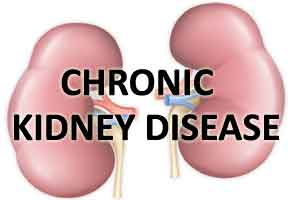- Home
- Editorial
- News
- Practice Guidelines
- Anesthesiology Guidelines
- Cancer Guidelines
- Cardiac Sciences Guidelines
- Critical Care Guidelines
- Dentistry Guidelines
- Dermatology Guidelines
- Diabetes and Endo Guidelines
- Diagnostics Guidelines
- ENT Guidelines
- Featured Practice Guidelines
- Gastroenterology Guidelines
- Geriatrics Guidelines
- Medicine Guidelines
- Nephrology Guidelines
- Neurosciences Guidelines
- Obs and Gynae Guidelines
- Ophthalmology Guidelines
- Orthopaedics Guidelines
- Paediatrics Guidelines
- Psychiatry Guidelines
- Pulmonology Guidelines
- Radiology Guidelines
- Surgery Guidelines
- Urology Guidelines
Study shows children with CKD may have lower IQ

Dr.Kerry Chen, (The Centre for Kidney Research, University of Sydney, in Australia) and her colleagues examined all of the published evidence on cognitive and academic outcomes in children and adolescents with CKD. The researchers found that children with chronic kidney disease (CKD) may have lower IQ compared with the general population, with mild deficits across academic skills, executive function, and visual and verbal memory.The study has been published in Clinical Journal of the American Society of Nephrology (CJASN).
CKD in children clearly affects their physical health, but research also indicates that it can have impacts on neurocognitive function, academic performance, and mental health. This can lead to long-term consequences for children with CKD as they transition into adulthood.
The researcher found that clinical practice, this research provides relevant information on the areas of need--for example, working memory and mathematics--for which children with CKD may need guidance, practice, and assistance, particularly for children on dialysis," said Dr. Chen. "It also suggests hypotheses for why the overall intellectual and educational outcomes of children with CKD are reduced compared with the general population, and how best to prevent deficits.
To look into this issue, Kerry Chen, MBBS (The Centre for Kidney Research, University of Sydney, in Australia) and her colleagues examined all of the published evidence on cognitive and academic outcomes in children and adolescents with CKD. Their analysis included 34 studies with more than 3000 CKD patients under the age of 21 years.
The analysis suggests that children with CKD may have low-average neurocognitive and academic outcomes. The global cognition IQ of children with CKD was classified as low-average. Compared with the general population, the average differences in IQ were -10.5 for all CKD stages, -9.39 for patients with mild-to-moderate stage CKD, -11.2 for patients who underwent kidney transplantation, and -16.2 for patients on dialysis. Direct comparisons showed that children with mild-to-moderate stage CKD and those who received kidney transplants scored 11.2 and 10.1 IQ points higher than children on dialysis. Children with CKD also had lower scores than the general population in executive function and memory domains, and they scored lower in tests of academic skills related to mathematics, reading, and spelling.
"In translating our findings to clinical practice, this research provides relevant information on the areas of need--for example, working memory and mathematics--for which children with CKD may need guidance, practice and assistance, particularly for children on dialysis," said Dr. Chen. "It also suggests hypotheses for why the overall intellectual and educational outcomes of children with CKD are reduced compared with the general population, and how best to prevent deficits."
An accompanying Patient Voice editorial provides the perspective of Lori Hartwell, Founder and President of the Renal Support Network, who has had kidney disease since 2 years of age. "I recall occasions while on hemodialysis experiencing poor cognition and difficulty retaining information," she wrote. "It is not surprising that children and adolescents on dialysis are at greater risk of such effects. Studies have shown a decline in cognitive function that has been associated with fluid and solute shifts while undergoing hemodialysis." She offers up a number of questions to consider as efforts are made to address patients' needs.

Disclaimer: This site is primarily intended for healthcare professionals. Any content/information on this website does not replace the advice of medical and/or health professionals and should not be construed as medical/diagnostic advice/endorsement or prescription. Use of this site is subject to our terms of use, privacy policy, advertisement policy. © 2020 Minerva Medical Treatment Pvt Ltd